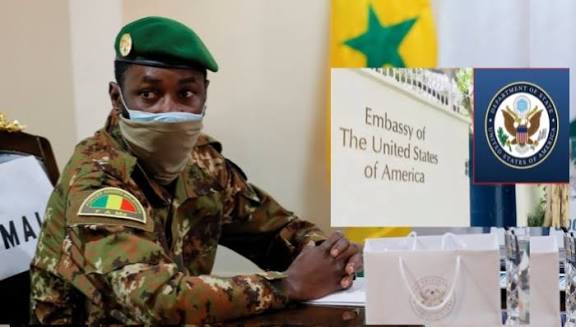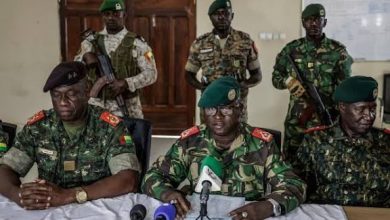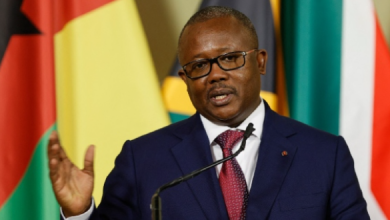U.S. orders citizens to leave Mali amid escalating terror threats, fuel blockade

The United States Embassy in Mali has issued an urgent security advisory urging all American citizens to leave the country immediately, citing escalating terrorist threats and a crippling fuel crisis triggered by a jihadi blockade.
In a statement released on Tuesday, the embassy advised U.S. nationals to depart via available commercial flights, warning that overland travel routes are unsafe due to frequent ambushes and terrorist attacks along major highways.
“U.S. citizens should depart Mali immediately using commercial options.
“The U.S. government has extremely limited ability to provide emergency assistance outside Bamako due to security concerns, ” statement said.
This is the second warning in three days, following an earlier alert that highlighted the deteriorating security situation and the rising risks of terrorism, crime, and kidnappings across the country.
The worsening crisis stemmed from a fuel blockade imposed in September by Jama’at Nusrat al-Islam wal-Muslimin (JNIM), an al-Qaeda-linked militant group that has waged a years-long insurgency against Mali’s military rulers.
JNIM claimed responsibility for blocking fuel tankers from entering Mali, saying the move was part of its campaign to weaken the junta that seized power in a 2021 coup.
Local reports indicated that more than 100 trucks have been set ablaze in attacks by militants, effectively cutting off vital supplies of fuel and goods to the capital, Bamako, and other major cities.
The blockade has paralysed much of the country’s economy. Schools and universities have closed nationwide, while public transport and logistics systems have nearly collapsed, leaving residents stranded and essential services severely disrupted.
JNIM is one of several extremist factions destabilising the Sahel region, a vast semi-arid belt stretching from North Africa to West Africa where insurgent violence has killed thousands and displaced millions over the past decade.
The Malian junta, which came to power after ousting President Ibrahim Boubacar Keïta in 2020 and later cutting ties with France, has struggled to contain the insurgency despite deploying Russian mercenaries and tightening military control.
The United Nations, African Union, and regional bodies have repeatedly warned that the worsening humanitarian situation in Mali could spill over into neighbouring countries, further straining already fragile governments across the region.
The U.S. Embassy reiterated that its ability to assist citizens remained “extremely limited” and urged Americans to monitor official updates, avoid large gatherings, and maintain situational awareness at all times.
“The security environment in Mali is unpredictable and dangerous,” the embassy said. “Terrorist and armed groups continue to target foreigners, government installations, and civilian populations.”



